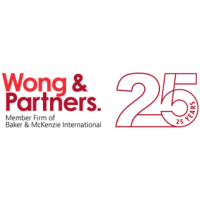

Chief legal and compliance officer | Fusionex Group




Sharin Veriah
Chief legal and compliance officer | Fusionex Group
What are the most significant cases or transactions that your legal team has recently been involved in?
In a more recent professional endeavour, I played a crucial role in a highly significant technology partnership, where I provided valuable support. I drafted and negotiated the contractual agreement, ensured the interests of the party I represented were sufficiently taken care of, and actively worked towards an optimal outcome for my client, while collaborating with the other party and their legal team. I leveraged my negotiation skills to secure favourable terms while maintaining a balanced approach that benefitted the collective goals of both parties. Additionally, I oversaw post-partnership activities, establishing working groups to manage important administrative and operational aspects critical to the partnership’s success. As the partnership evolved, I engaged with new stakeholders, ensuring their interests aligned with the party I represented.
What are some of your main tips for dealing with a crisis?
In navigating a crisis, composure is key. By maintaining a cool head, you gain clarity to assess the situation effectively and provide the guidance necessary. It is crucial to prioritise safeguarding the company’s image, which requires a strategic approach to crisis management, including the supervision of all communications from a legal and public relations standpoint.
Moreover, a comprehensive crisis response entails corporation-wide management. This involves steering the team towards a solution that minimises the impact on the business. Effectively managing stakeholders is equally critical, ensuring open lines of communication and keeping them informed of the progress made in resolving the crisis.
As we enter the next decade, what skills will a corporate legal team need to succeed in the modern in-house industry?
Firstly, a deep understanding of your organisation’s business is imperative. Once a legal team understands the intricacies of the organisation’s operations, dynamics, and strategic goals, it allows them to tailor their advice and guidance accordingly.
It is also vital to go beyond pure legal knowledge; a successful legal team should possess commercial acumen, which involves having a solid grasp of financial implications, market trends, and the competitive landscape. By being commercially savvy, legal professionals can provide well-rounded advice that considers both legal and business factors.
Finally, critical thinking and the ability to offer practical solutions are key skills. Rather than merely identifying legal issues or roadblocks, effective legal teams should focus on problem-solving. They should actively seek innovative and pragmatic solutions that mitigate risks and support business objectives.
How do you suggest in-house lawyers build strong relationships with business partners?
The easiest way is to get out the office and engage in direct conversations with business partners. By spending time with them, you can learn a lot about their needs, challenges, and goals. Not only is this personal interaction great for establishing rapport and trust, but it is also invaluable.
A severely underappreciated skill is simply listening to people. Active listening is the first step towards empathetically addressing the concerns of your clients. As an in-house lawyer, it is crucial to proactively engage with cross-functional teams, actively participate in project meetings, and provide support during critical decision-making processes. By being accessible and approachable, you can foster trust and cultivate effective partnerships. Additionally, staying informed about industry trends and legal developments is essential in order to provide valuable insights to your organisation.